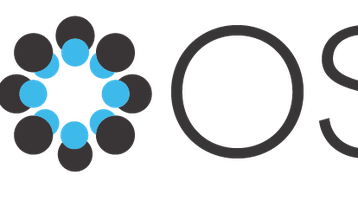Unlocking relationships in the papers of Nobel laureates
If you reflect on your university experience, you will recall the joys of making new friends and the excitement of exploring subjects in great depth. The most enduring legacy will likely be the influence of the contemporaries and faculty who inspired you to reach beyond what you thought you were capable of, shaping your future.
It may come as a surprise that faculty have those same experiences with one another as they incubate and develop their theories and philosophies, leading to remarkable breakthroughs. The University of Chicago Library holds the papers or medals of 21 Nobel laureates and 1,250 University of Chicago faculty and alumni, so that the scholars of today and tomorrow can learn more about those relationships.

Three Nobel laureates in economics—George Stigler, Gary Becker, and Theodore Schultz—developed strong relationships with one another during their long tenures at the University of Chicago, and their papers will be organized so that future scholars can better understand their research. George Stigler, PhD’38 (1911-1991), who held a joint appointment in Chicago Booth and the Department of Economics, focused his work, as his Nobel citation indicated, on “studies of industrial structures, functioning of markets, and causes and effects of public regulation.” Stigler’s contemporary, Theodore Schultz (1902-1998), Professor and Chair of the Department of Economics, began working in agricultural economics and moved toward formulation of the idea of human capital, emphasizing the role of individual education and accumulated knowledge in capital production. And Gary Becker, AM’53, PhD’55 (1930-2014), collaborated with Schultz, and together they elaborated and extended the theory of human capital. Becker’s early prominence in economics was due to his work in this field with Schultz, which was highlighted by the publication of his monograph Human Capital in 1964.
The close ties between these Nobel laureates are reflected in the many intersections of correspondence and manuscripts throughout the Stigler, Schultz, and Becker papers. Schultz forms a hinge between Stigler and his theory on market economics and Becker, with his collaborative development of human capital theory.
The papers of Stigler, Schultz, and Becker will be undergoing processing. They will be organized by a professional processing archivist, any conservation repairs or treatments will be carried out, and a guide will be created as a finding aid. The Library is tremendously grateful to the currently anonymous donor who is providing the funding to process all three of these collections, recognizing that faculty, students, and researchers will benefit from having access to them and developing a greater understanding of how these Nobel laureates influenced one another.
The Library is grateful to all the faculty and alumni who have contributed or made the commitment to donate their papers, medals, certificates, photographs, and more to the University Archives. They make a significant difference in research, learning, and wider engagement as the focus of lectures, public symposia, exhibitions, and other public programs and web exhibits. We hope to encourage more faculty and alumni to consider leaving their collections to the Archives and create a lasting legacy to their academic careers.
If you are interested in learning more about how you can support the University’s collection of academic papers in the University Archives, including those of Nobel laureates, please get in touch with the Library’s Development team at development@lib.uchicago.edu.


